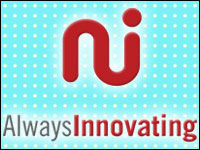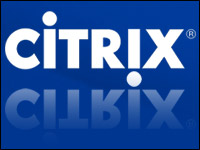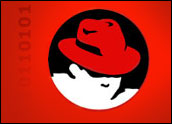
Dell took another step toward fulfilling its promise of brining preinstalled Linux operating systems to select consumer computers Tuesday when it announced it has selected Canonical’s Ubuntu as its distribution of choice.
While many Linux enthusiasts have hailed the announcement and look forward to the moment when the Dell computers go on sale at the end of May, some industry watchers have been left to ponder how the No. 2 computer manufacturer will make sales of Ubuntu 7.04, known as “Feisty Fawn,” profitable.
It is a legitimate question to ask at the start of Dell’s second foray into the Linux OS market. The computer maker’s first effort began in 1999 with Linux PCs and grew to include laptops in 2000. However, just a few months later in 2001, Dell canceled that line of Linux PCs due to poor sales.
Ubuntu What?
Ubuntu is true open source, and draws many of its users from real computer geeks who often have themselves contributed lines of code to the operating system.
“It is truly leading-edge stuff,” Laura DiDio, a Yankee Group research fellow, told LinuxInsider.
The software is so leading-edge that in a 2006 survey, Didio conducted measuring uptime for different operating systems such as Windows, Solaris and different versions of Linux, Ubuntu had the highest number of downtime hours, coming in at 19 hours of downtime per server each year. Canonical has really pushed the envelope, DiDio explained, so there is not a lot of documentation available.
“You really have to know what you’re doing and you have to rely on a really small stable of people to help you out to take remedial action when something goes wrong,” she noted. “Ubuntu is very leading-edge and not for the faint of heart. You have to know what you’re doing.”
What They Say vs. What They’ll Buy
The question remaining in the tie-up between Dell and Canonical is how much service and support will Dell provide, DiDio said. Dell could make a lot of money from such a premium service, she noted.
Dell has stated that it made the decision to provide select systems with a preinstalled Linux OS at the behest of some 100,000 members of its IdeaStorm community Web site, the company’s portal for consumer suggestions and interaction. That could mean 100,000 computers sold, plus many as word-of-mouth circulates among Linux users. That outcome, however, is far from certain.
“Are they just catering to a very vocal minority of technocrats?” DiDio wondered.
The Money Factor
Preloading Linux instead of Windows, means Dell will lose a lot of financial support from Microsoft, according to Rob Enderle, principal analyst at the Enderle Group. For each Windows PC or laptop Dell sells, Microsoft gives money back to Dell for marketing, he told LinuxInsider. Some of it may go back into marketing, Enderle explained, but Dell can do whatever it wants with the money.
“Linux doesn’t throw off enough cash for Dell to get the same thing from Linux,” Enderle continued. “Windows sales generate a lot of cash, so [with Ubuntu, the profit margins] will be relatively tight.”
Very often the buyer wants the least expensive OS, and in the case of Ubuntu, they start off free. So, Enderle said, Dell cannot even expect to make the same amount it makes with each Windows OS sale. Dell also loses out on any support Microsoft provides as well.
“Ubuntu does not have the resources [to offer any deals similar to those from Microsoft],” Enderle pointed out. “If people paid them anything close to what they paid for Windows, then they might be able to make this work. But it doesn’t look like that will be the case.”
Intially, Enderle suggested, it will be tough for Dell to make the deal as profitable as their Windows business. Even the Windows market is not that profitable. The margins are very slim and the money that comes back from Microsoft makes a huge difference, he noted.




















































While I don’t know what kind of deal Dell reached with Canonical to put Ubuntu on their boxes, I personally think that they made the wrong choice, both strategically and financially. As a OSX and XP user, I was somewhat disappointed with my first encounter with Ubuntu about a year ago. I found it to be hyped, not really P&P, and the Gnome interface a bit clunky. Even Linus Torvalds said that Gnome suffered from under development. Since then, after trying just about a dozen distros, I settled with PCLOS, the most user friendly, fastest and polished distro of the lot. Their support and community is outstanding and Texstar is very prudent when it comes to new releases (a + in my book). PCLOS in my view, takes a lot of the pain out of migrating from XP by making it almost effortless.
You don’t need a crystal ball to read the writing on the wall. A short trip to the distro stats on DistroWatch and it becomes clear that PCLOS is fast becoming the favorite and his bound to overtake Ubuntu this year.
why not just stick with red hat and/or fedora core, their already well supported, great documentation and the list goes on and on. Mandriva also…
The next thing you know.. they’ll have 10 different flavors you can choose for your dell. I say go for it, then we wont have to listed to ppl telling everyone how great their distro is etc.. etc…
The real deal is just mastering your linux shell anyways.
Dell probably doesnt profit by installing the microsoft operating system either…
So whats the question?